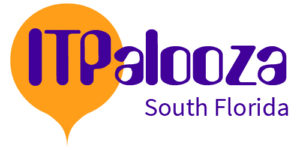What are guidelines for storing and using stored credit cards for layaway plans? What is solution for auto payment layaway plan? Credit card processing rules have changed.
The process for storing and using stored cards rules are largely set by the Payment Card Industry Data Security Standards (PCI DSS) and Card network acceptance rules. Huge changes went into effect in 2017, starting with the Visa Stored Credential Mandate, and more are coming.
For a layaway plan, you need a payment gateway that supports sending the correct transaction type indicator. That would be either installment or unscheduled credential on file, depending on the agreement with buyer. This is outlined in Visa Core Rules and Visa Product and Service Rules, section 5.9.9 Prepayments, Repeated Payments, and Deferred Payments. If accepting prepayments merchants must comply with Table 5-20, Requirements for Prepayments and Transactions Using Stored Credentials.
Visa specifies that when Cardholder gives their consent to items in table 5-20, it must be displayed separately from the general purchase terms and conditions. The Merchant must provide, and the Cardholder must consent to all of the following in writing at the time of the first or only partial prepayment:
- Description of promised merchandise or services
- Terms of service
- Timing of delivery to Cardholder
- Transaction amount
- Total purchase price
- Terms of final payment, including the amount and currency
- Cancellation and refund policies
- Date and time that any cancellation privileges expire without prepayment forfeiture
- Any associated charges
In addition, for Installment Transactions, both:
- Total purchase price
- Terms of future payments, including the dates, amounts, and currency
Plus
- How the cardholder will be notified of any changes to the agreement
- How the Stored Credential will be used
- The expiration date of the agreement, if applicable
In summary, merchants documents for compliance:
- Sales agreement
- Cardholder Agreement for Prepayment
- Cardholder Agreement for Storing & Using Stored Cards
Traditional old credit card authorization forms are dead. Merchants cannot get them on paper, and most digital forms are also not compliant. Requirements are specified in Visa Table 5-20.
Merchants payment technology to comply with rules:
- Inform the issuer via a transaction that payment credentials are now stored on file.
- Identify transactions with appropriate indicators when using stored credentials. (Recurring, installment, or unscheduled credential on file.)
Not all payment gateways are capable of meeting current compliance rules for all transaction types. How much the payment gateway solution helps automate compliance varies widely. If you need a solution for automotive layaway plan, you need an expert in rules compliance to avoid penalty fees, issuer chargebacks, and other costly problems. For help choosing the best solution for your company, contact us.
Resources and documentation /blog/merchant-bulletins-downloads – bookmark it!. Join Christine Speedy’s email list.
DISCLAIMER: condensed and incomplete information! Information may be quickly outdated. Contact a lawyer for legal advice.
Need a solution? Call Christine Speedy, 954-942-0483, 9-5 ET, CenPOS authorized global reseller. CenPOS is an integrated commerce technology platform driving innovative, omnichannel solutions tailored to meet a merchant’s market needs. Providing a single point of integration, the CenPOS platform combines payment, commerce and value-added functionality enabling merchants to transform their commerce experience, eliminate the need to manage complex integrations, reduce the burden of accepting payments and create deeper customer relationships.

